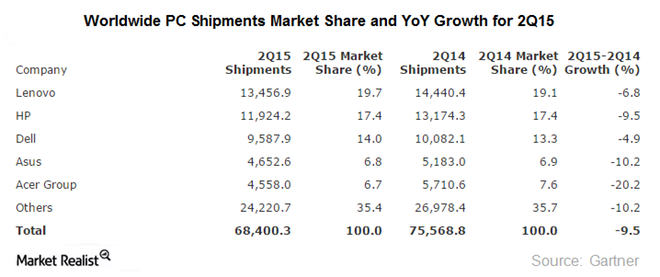
It was another big week for IBM and Watson with the announcement of Watson offices moving to Silicon Valley. IBM wants to be close to the disruptions and maybe cause a few. But as businesses expand into the unfamiliar world of AI, cloud, and SaaS, are they locking themselves into environment they can’t get out of easily?
As datacenters and server budgets shrink, is there an exit strategy to the externally hosted ecosystem?
IBM
- IBM Watson sharpens its cognitive skills: New APIs help make it more ‘human’
As part of this announcement, IBM also said it will expand the company’s presence in Silicon Valley and the greater Bay Area with a new Watson Hub, South of Market in San Francisco. IBM believes it will put them closer to, and increase collaboration with, the local start ups, developers, venture capital groups, established businesses and academic experts the company is currently working with to take cognitive computing into new markets. The location will also serve as the new global headquarters for IBM Commerce, a high-growth industry opportunity for IBM and Watson. The facility is scheduled to open in early 2016.
- Watson to become a huge sales engine…
http://www.bloomberg.com/news/videos/2015-09-24/ibm-s-watson-said-to-become-huge-engine-for-sales - Massachusetts gives IBM a $2.5M tax break for absolutely no reason whatsoever
IBM has promised to create 500 new jobs in exchange for its tax break. If they don’t, there will be hell to pay … or at least they’ll have to give back some of the $2.5 million.
- IBM boosts security of bring your own cloud apps
The technology helps a company discover the cloud-based apps its employees are using on their computers and mobile devices and then helps roll out a safer way of using them, without impacting productivity. Hosted on IBM Cloud, the solution scans a company’s network to find the apps being used, which are then analysed using deep threat analytics from IBM X-Force.
EMC
- Cloud takes a bite out of backup boss EMC’s top line in Q2
The storage titan saw its quarterly sales drop 16.9 per cent annually to $414.4m, and its share of the market came in more than six points lower than in the corresponding period last year. Second-placed Symantec – whose $104.5m revenue accounted for 14.4 per cent of the worldwide total – endured a decline of a comparatively modest 3.7 per cent
They added:
“Focus continues to shift away from hardware-centric, on-premise PBBA systems to hybrid/gateway systems,” she said. “The results [of this] are greater emphasis on backup and deduplication software, the ability to tier or push data to the cloud, and the increasing commoditisation of hardware, all of which require market participants to adjust product portfolios accordingly.”
Hewlett Packard
- HP sidesteps specifics on Autonomy’s Cambridge future
As HP starts shedding assets from failed acquisitions (EDS), what happens with the Autonomy product line will be interesting considering the back story on the purchase.
http://www.businessweekly.co.uk/news/hi-tech/hp-sidesteps-specifics-autonomy%E2%80%99s-cambridge-future - Hewlett-Packard could snap up Stratasys, analyst writes
Tech website ZDnet has a post on the report from Jefferies analyst Jason North, who argued that Stratasys would be the best fit for H-P, which has said it’s open to acquisitions in 3-D printing. Stratasys already has strong tech in the 3-D printing sector and, unlike competitors, has a well-developed reseller network.
- HP’s Personal Systems Performance in 3Q15

http://marketrealist.com/2015/09/how-did-hps-personal-systems-performed-in-fiscal-3q15/
Other
- Oracle: Taking on AWS head on in cloud
“When you own a hardware company, which Amazon doesn’t, that puts you in a very advantageous position, clearly you don’t abuse that position but we can control margins as tightly as Amazon.
http://www.cbronline.com/news/cloud/public/oracle-taking-on-aws-head-on-in-cloud-4678422
- Did Microsoft Corporation Just Become the Best Growth and Income Stock in Tech?
IBM’s cloud results are solid, but Microsoft has taken its cloud sales to a whole, new level. Thanks to its emphasis on Software-as-a-Service (SaaS) delivered via the cloud, Microsoft is on track to generate more than $8 billion in sales annually, putting it squarely at the top of the cloud provider list. Now toss in its 16% dividend hike and annual yield of 3.25%, and Microsoft should also top a growth and income investors buy list.
- The Long Term Strategic Problem of a Lock-In Strategy
The Wall Street Journal ran an interesting story about how Apple creates a “happy trap” with its products so that once people buy-in to the Apple eco-system, they can’t move out without an acceptable amount of pain. This is called a lock-in strategy. IBM’s dominance in the computing space up till almost the end of the 1980s was a showcase of how incredibly profitable and successful this can be. Personally, I’m not a fan of the lock-in strategy. Firms like Oracle pursue this strategy aggressively in the very real hope of gaining a similar result, and they likely will. Tactically, it is brilliant, but IBM’s near failure in the late 1980s was also the result of this same strategy, which showcases that it can also be deadly to the companies that use it.
- Red Hat To Be First $2 Billion Open Source Company
Red Hat turned in solid financial results this week as its quarterly subscription revenue rose 13% or $504 million for the second quarter of its fiscal 2016 as CEO Jim Whitehurst and the company’s new CFO, Frank Calderoni, staked out a future for the company in the cloud operations.
- Splunk’s Marc Olesen: The man offering 100% uptime SLAs in the cloud
Can anything in technology be 100% certain? Olesen seems to think so. It’s a convincing pitch. For one, Amazon Web Service’s has effective failover strategies in place. Splunk is using its own product to monitor performance and incidents, which Olesen says gives him and his team additional assurances.
http://diginomica.com/2015/09/25/splunks-marc-olesen-the-man-offering-100-uptime-slas-in-the-cloud/
- Hadoop is slowly eating conventional analytics
The major Hadoop vendors say Hadoop is not an enterprise data warehouse (EDW) solution, nor does it replace EDW solutions. That’s because Hadoop providers want to co-sell with Teradata and IBM Netezza, despite hawking products that are increasingly eating into the market established by the big incumbents.
Here is an interesting white paper on the topic:
http://gsl.azurewebsites.net/Portals/0/Users/dewitt/Papers/Hadoop/cacm2010.pdf

